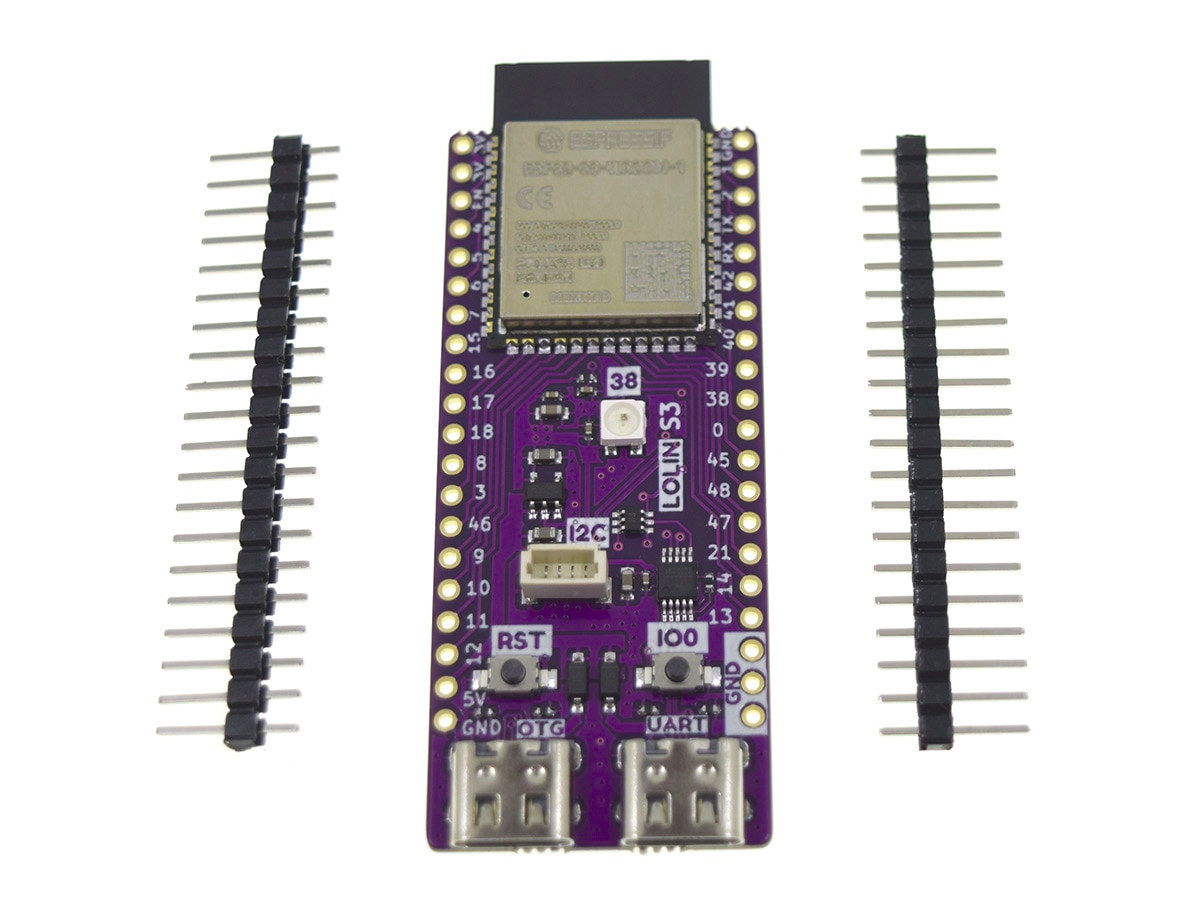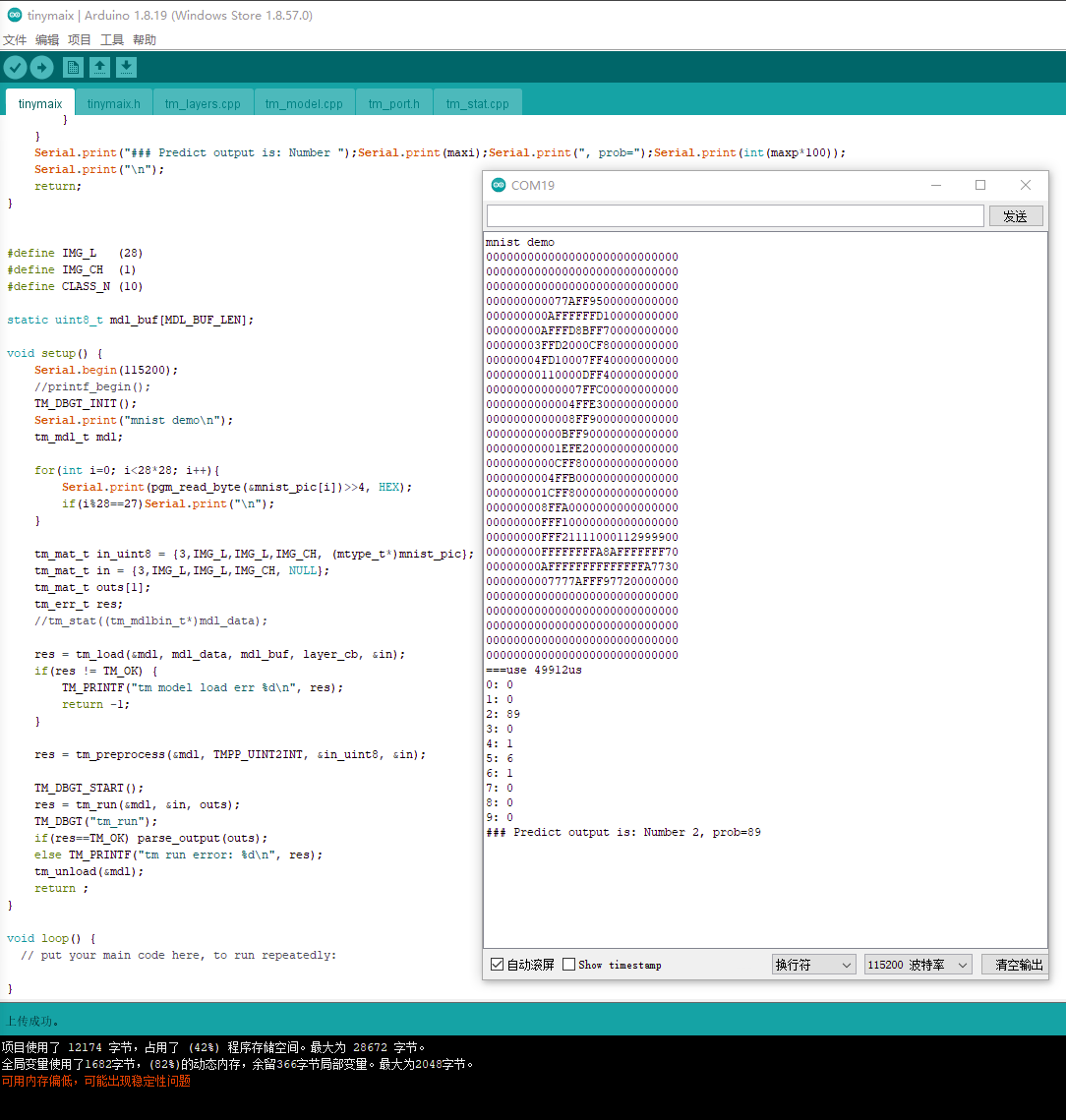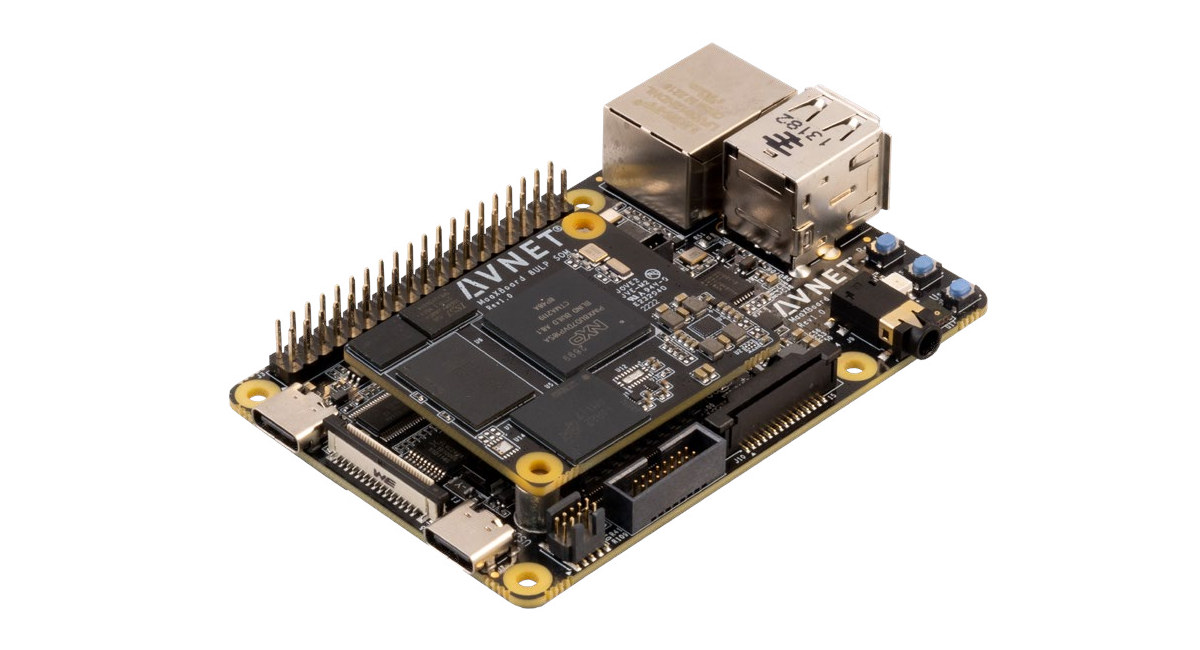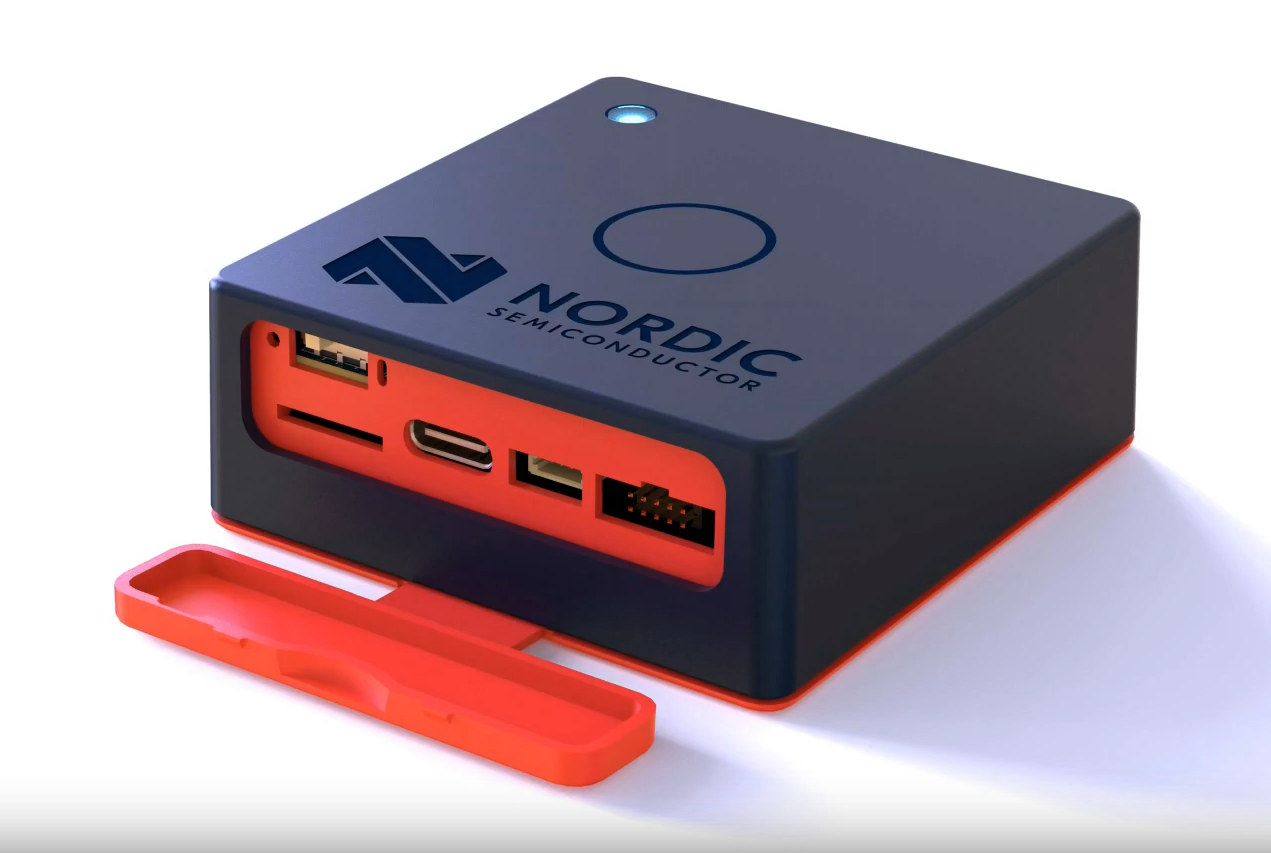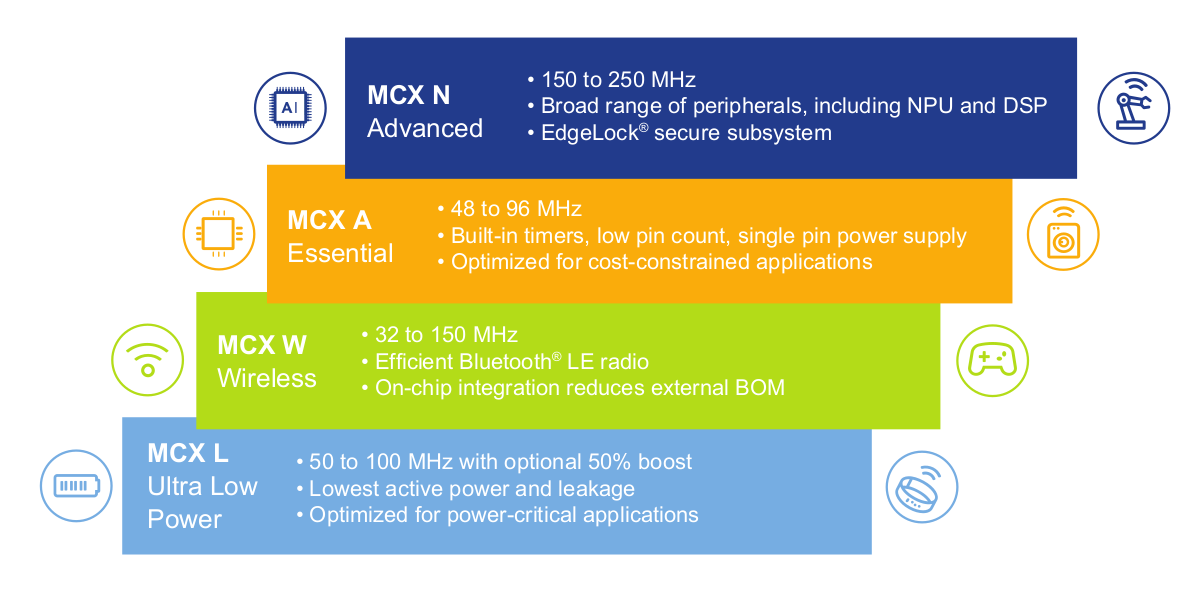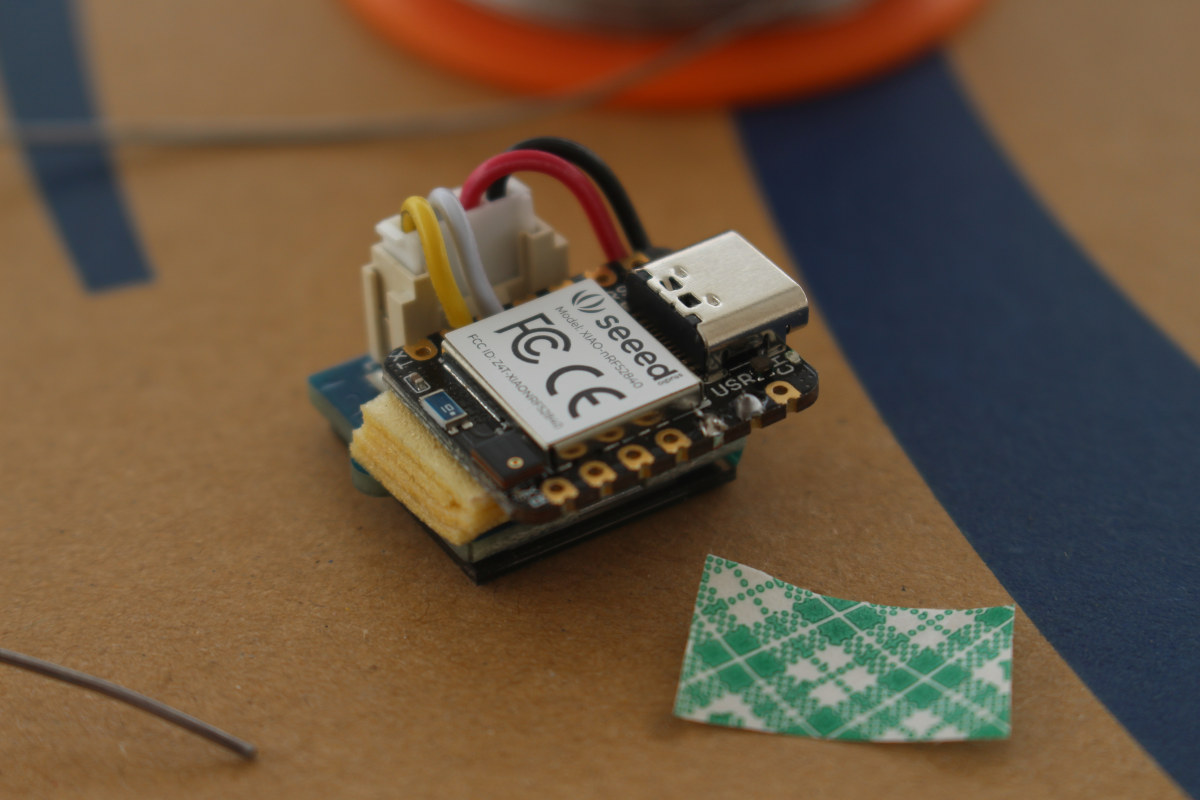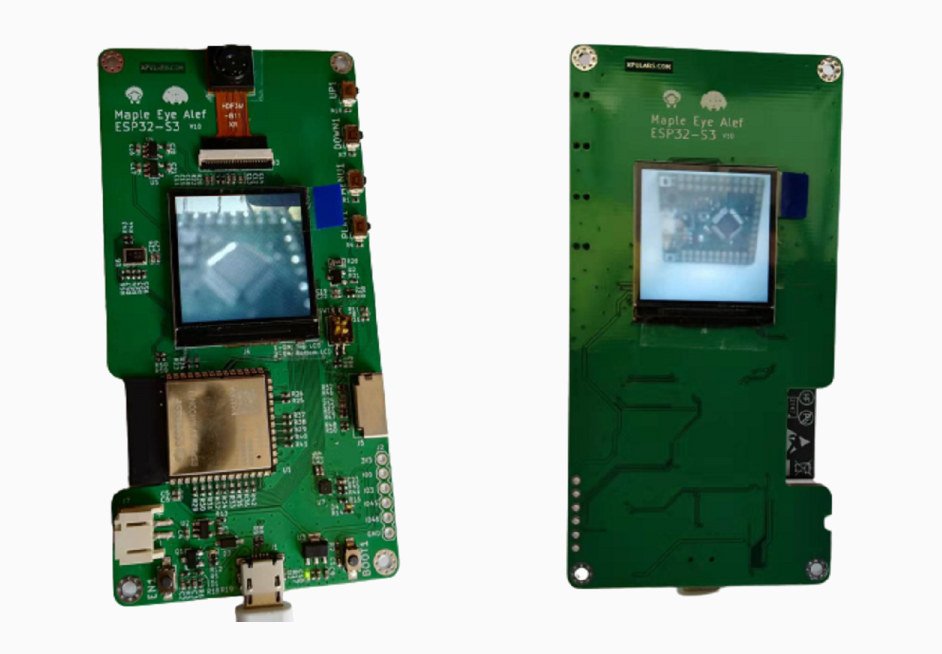Lolin S3 is the first ESP32-S3 board from the company, but instead of using the more compact D1 mini form factor, the board features a longer design with two rows of 20 pins offering up to 31 GPIOs. Based on ESP32-S3-WROOM-1 module, the board features 16MB QSPI flash, 8MB SPRAM, two USB Type-C OTG and UART ports, a Lolin I2C port, an RGB LED, as well as Reset and user buttons. Lolin S3 specifications: Wireless module – ESP32-S3-WROOM-1 module with: Espressif Systems ESP32-S3 dual-core Tensilica LX7 @ up to 240 MHz with vector instructions for AI acceleration, 512KB RAM, 2.4 GHz WiFi 4 and Bluetooth 5.0 LE with support for long-range, up to 2Mbps data rate, mesh networking 16MB QSPI flash 8MB PSRAM PCB antenna USB – 2x USB Type-C ports, one OTG port, one UART port for programming and debugging Expansion 2x 20-pin headers with up to 31x GPIO, […]
TinyMaix is a lightweight machine learning library for microcontrollers
Sipeed TinyMaix open-source machine learning library is designed for microcontrollers, and lightweight enough to run on a Microchip ATmega328 MCU found in the Arduino UNO board and its many clones. Developed during a weekend hackathon, the core code of TinyMax is about 400 lines long, with a binary size of about 3KB, and low RAM usage, enabling it to run the MNIST handwritten digit classification on an ATmega320 MCU with just 2KB SRAM and 32KB flash. TinyMax highlights Small footprint Core code is less than 400 lines (tm_layers.c+tm_model.c+arch_O0.h), code .text section less than 3KB Low RAM consumption, with the MNIST classification running on less than 1KB RAM Support INT8/FP32 model, convert from keras h5 or tflite. Support multi-architecture acceleration: ARM SIMD/NEON, MVEI, RV32P, RV64V (32-bit & 64-bit RISC-V vector extensions) User-friendly interfaces, just load/run models Supports full static memory config MaixHub Online Model Training support coming soon Sipeed says there […]
MaaXBoard 8ULP SBC leverages NXP i.MX 8ULP Cortex-A35/M33 SoC for Edge audio and HMI applications
Avnet MaaxBoard 8ULP will be one of the first single board computers (SBC) based on the new NXP i.MX 8ULP Cortex-A35/M33 processor designed for Edge audio and HMI applications, and featuring NXP’s EdgeLock for device-to-cloud security. The board will come with 2GB RAM, 32GB eMMC flash, a MIPI DSI display connector, a MIPI CSI camera connector, Fast Ethernet and WiFi 5 connectivity, a digital microphone, and a 3.5mm stereo audio jack, and provide expansion capabilities via a 40-pin header for Raspberry Pi HATs and a 16-pin Shuttle Click header for MikroE Click add-on boards. MaaXBoard 8ULP SBC specifications: SoC – NXP i.MX 8ULP processor with 2x Arm Cortex-A35 core @ 1.0 GHz, 1x Arm Cortex-M33 real-time core @ 216 MHz, 1x HiFi 4 audio DSP @ 600 MHz, 1x Fusion DSP @ 200 MHz for low-power voice and sensor hub processing, as well as 2D and 3D GPUs and 768 […]
Nordic Thingy:53 is a dual-core Arm Cortex-M33 platform for IoT prototyping
As one should have expected after Nordic Thingy:52 and Thingy:91 IoT devkits were introduced in 2017 and 2019 respectively, the Norwegian company has now launched the Thingy:53 platform based on Nordic Semi nRF5340 dual-core Arm Cortex-M33 SoC for IoT prototyping with Bluetooth Low Energy, Thread, Matter, Zigbee, IEEE 802.15.4, NFC, and Bluetooth mesh RF protocols. The development kit also incorporates the nPM1100 PMIC and nRF21540 Front End Module (FEM), a power amplifier/low noise amplifier (PA/LNA) range extender, as well as multiple motion and environmental sensors, as well as a rechargeable 1350 mAh Li-Po battery for power. Nordic Thingy:53 specifications: SoC – Nordic Semi nRF5340 SoC with 128 MHz Arm Cortex-M33 Application core with 1 MB Flash + 512 KB RAM, and a 64 MHz Arm Cortex-M33 Network core with 256 KB Flash + 64 KB RAM Wireless connectivity RF front-end nRF21540 FEM Protocols – Bluetooth LE, Bluetooth Mesh, NFC, Thread/Zigbee, […]
NXP unveils MCX general-purpose Arm MCU family with 30x faster machine learning performance
NXP has announced a new MCX general-purpose Arm Cortex-M MCU family designed for advanced industrial and IoT edge computing and integrating an NXP neural processing unit (NPU) capable of delivering over 30 times higher performance than running the AI inference tasks on an Arm Cortex-M33 core alone. The new MCX portfolio builds upon the earlier NXP LPC and Kinetis microcontroller families, but does not replace these, and aims to improve machine learning performance and security for a variety of applications including machine learning, wireless, voice, motor control, analog, and more. The new MCX family will be available in four series: MCX N Advanced series Designed for secure, intelligent applications 150 MHz to 250 MHz Neural processing unit (NPU) and DSP for real-time inference EdgeLock Secure Subsystem MCX A Essential series Optimized to provide critical functionality for applications such as motor control 48 MHz to 96 MHz Built-in timers, low pin […]
Trying out Edge Impulse machine learning platform on XIAO BLE Sense board
I had seen the Edge Impulse development platform for machine learning on edge devices being used by several boards, but I hadn’t had an opportunity to try it out so far. So when Seeed Studio asked me whether I’d be interested to test the nRF52840-powered XIAO BLE Sense board, I thought it might be a good idea to review it with Edge Impulse as I had seen a motion/gesture recognition demo on the board. It was quite a challenge as it took me four months to complete the review from the time Seeed Studio first contacted me, mostly due to poor communications from DHL causing the first boards to go to customs’ heaven, then wasting time with some of the worse instructions I had seen in a long time (now fixed), and other reviews getting in the way. But I finally managed to get it working (sort of), so let’s […]
FOMO (Faster Objects, More Objects) enables real-time object detection on low-end embedded systems
FOMO used to stand for “Fear Of Missing Out” in my corner of the Internet, but Edge Impulse’s FOMO is completely different, as the “Faster Object, More Objects” model is designed to lower the footprint and improve the performance of object detection on resource-constrained embedded systems. The company says FOMO is 30x faster than MobileNet SSD and works on systems with less than 200K of RAM available. Edge Impulse explains the FOMO model provides a variant between basic image classification (e.g. is there a face in the image?) and more complex object detection (how many faces are in the image, if any, and where and what size are they?). That’s basically a simplified version of object detection where we’ll know the position of the objects in the image, but not their sizes. So instead of seeing the usual bounding box while the model is running, the face position will be […]
Maple Eye ESP32-S3 board offers 2MP camera, microphone, and two LCD displays
AnalogLamb Maple Eye ESP32-S3 is a WiFi and Bluetooth connected board based on ESP32-S3 dual-core Xtensa LX7 microcontroller and equipped with one 2MP camera, one microphone, and two LCD displays placed on each side of the board. Those features, plus 8MB of flash and an 8 MB Octal PSRAM, allow the board to make good use of ESP32-S3 AI instructions through the ESP-DL library found in ESP-WHO framework in order to speed up face detection and recognition algorithms, or for audio processing. Maple Eye ESP32-S3 specifications: Wireless module – ESP32-S3-WROOM-1 module with ESP32-S3 dual-core Xtensa LX7 processor @ up to 240 MHz integrating vector instructions for AI acceleration, 512 KB SRAM, 8MB PSRAM & 8MB Octal SPI Flash Storage – MicroSD card interface Displays – 2x 1.3-inch TFT LCD displays, selectable by switch Camera – 2MP OV2640 camera Audio – Digital microphone for VAD (voice activity detection) & ASR (automatic […]


